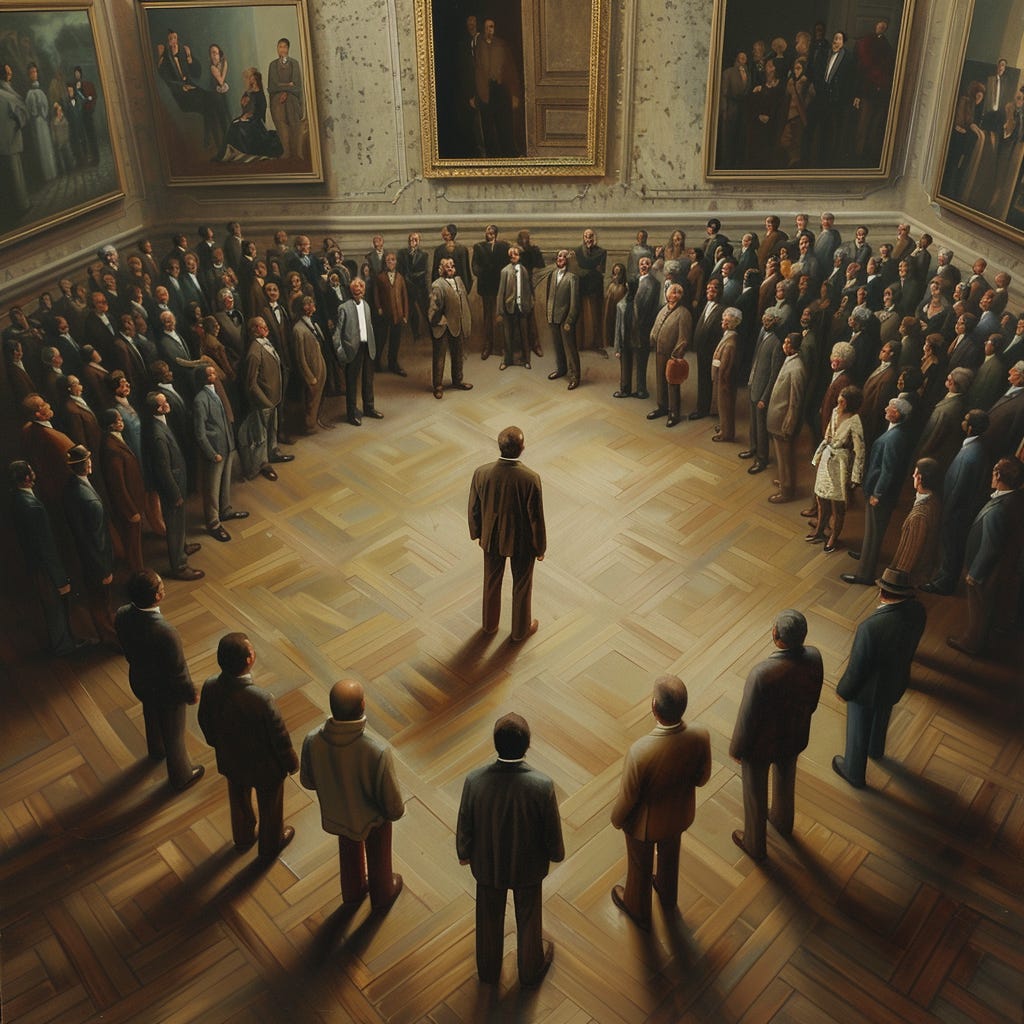Perception vs. Perspective: From Edmund Husserl's Philosophy to Former CIA Agent Andrew Bustamante's Insight
Mastering the Art of Empathy and Consciousness for Personal and Professional Growth
Introduction. The ability to understand and navigate diverse perspectives has become a crucial skill. Through the philosophical insights of Edmund Husserl and the trained and practical experiences of former CIA agent Andrew Bustamante, we can unlock the transformative power of perspective-taking.
Edmund Husserl's Phenomenology of Consciousness. To lay the groundwork for our discussion, let's delve into the ideas of Edmund Husserl, the founder of phenomenology. Husserl distinguishes between the natural attitude, our default mode of engaging with the world, and the phenomenological attitude, a reflective stance that allows us to examine our own consciousness.
Husserl emphasizes the interplay between our subjective experiences and the objective world. By recognizing and reflecting on our own perspectives, we can begin to disentangle our biases and assumptions from reality. This process enables us to develop a more comprehensive understanding of ourselves and others.
Central to Husserl's philosophy is the concept of the transcendental ego, the core of our consciousness that remains constant amidst the flux of experiences. By tapping into this deeper level of awareness, we can cultivate a more objective view of the world, one that transcends our individual perceptions.
Husserl also explores the notion of intersubjectivity, the shared world of meaning that arises through empathy and understanding others' perspectives. When we actively engage in perspective-taking, we contribute to the creation of a richer, more nuanced social reality. You can read more about Edmund Husserl’s work here.
Applying Husserl's Ideas: A Former CIA Agent's Perspective. To see how Husserl's philosophical insights translate into real-world applications, we turn to the experiences of Andrew Bustamante, a former CIA agent. In an discussion with The Fearless Man, Bustamante shares his insights on the power of perspective-taking.
Bustamante points out that most people operate on an "animalistic" level, processing the world solely through their own eyes and ears. They remain stuck in their own perceptions, unable to grasp the bigger picture.
The key to breaking free from this trap, Bustamante argues, lies in shifting from perception to perspective. By intentionally thinking about another person's experience, we gain a deeper understanding of their motives, actions, and reactions. This perspective shift allows us to anticipate outcomes, resolve conflicts efficiently, and build stronger relationships.
To illustrate the power of perspective, Bustamante shares an example of a police officer arriving at the scene of a scuffle. The officer's perception is skewed because he lacks control over the environment and fails to acknowledge the perspectives of those involved. Had the officer engaged in perspective-taking, he might have responded differently.
You can watch the snippet below:
Mastering the Art of Perspective: A Practical Toolkit. To harness the power of perspective in our daily lives, we can apply a few practical strategies:
Recognize the limitations of our own perceptions. By making the effort to consciously examine your assumptions and biases, you open yourself up to new insights and possibilities. This is important towards beginning to understand your environment.
Actively seek out others' perspectives. This requires genuine curiosity, active listening, and a willingness to suspend judgment. Ask questions and empathize with others' experiences to broaden your understanding. The easiest way to do this is by having a conversation with someone.
Integrate perspective-taking into your decision-making processes. Before reacting to a challenge or conflict, pause to consider the perspectives of all stakeholders involved. This approach can lead to more creative solutions and more than likely benefit all parties involved. This ties directly into points 1 and 2 above. Ask questions and have conversations to get an understanding of the situation.
Practice empathy exercises. Put yourself in someone else's shoes and imagine how they might feel or think in a given situation. This mental exercise can help you develop a more intuitive understanding of others' perspectives. This comes down to personal experience. More than likely you have already dealt with a situation that you are currently in. With that understanding, you can help other individuals come to terms with the current situation.
The Takeaway. By combining the philosophical insights of Edmund Husserl with the practical wisdom of Andrew Bustamante, we can unlock the transformative power of perspective-taking. Recognizing our subjective experiences into the objective world, and actively engaging in empathy, we can navigate complex social landscapes effectively.
Mastering the art of perspective requires both self-awareness and interpersonal understanding.
So, the next time you find yourself stuck in your own perceptions, remember the words of Husserl and Bustamante. Step back, reflect on your consciousness, and imagine the world through the eyes of another. The power of perspective awaits – it's up to you to unlock it.


